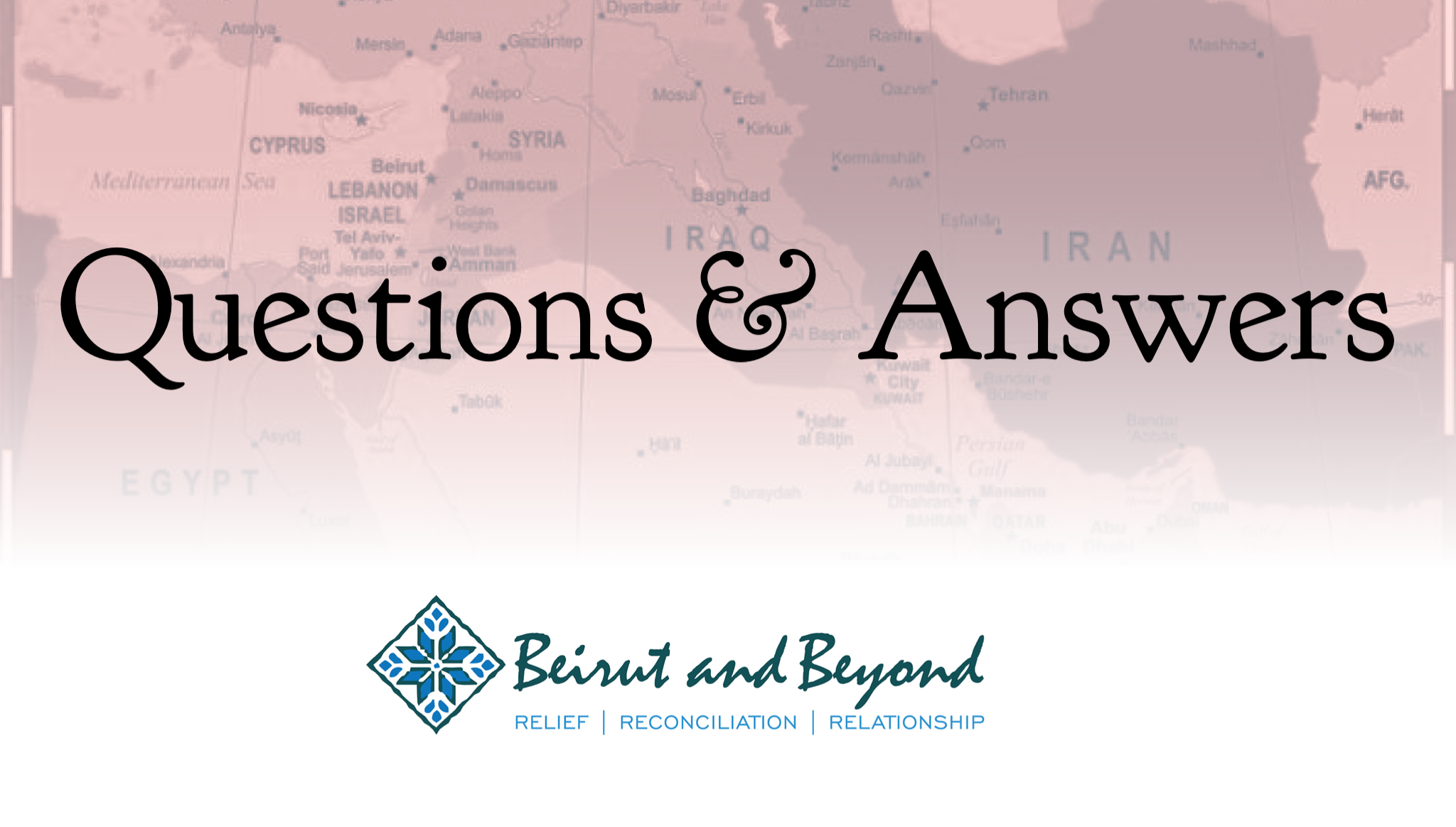Beirut and Beyond Q&A Night
Monday, September 21st
7pm MST
Zoom
Ask Questions
Seek Knowledge
Be Informed
Have you ever been too intimidated to ask questions about the Middle East? Ever felt confused about regional geopolitics, conflicts, and humanitarian crises?
We want you to ask.
We will provide a safe space online to ask questions and learn more about the Middle East. We at Beirut and Beyond know that our Q&A sessions are incredibly important to our audience. We want to give you an entire night of questions and answers.
Ask us questions about the Middle East, our work, conflict, policy, religion, and politics. We’ll also give updates on the Beirut blast, COVID, and Palestinian refugee camps in Jordan and Lebanon.
We hope this night will give you clarity and understanding on the intricacies of the Middle East.
What do you want to know?
Ask us.
Who we are:
Steve Phillips, a Beirut and Beyond board member, lawyer, and geopolitical nerd.
Dr. Alison Schofield, associate professor of Judaic Studies at Denver University and Dead Sea Scrolls scholar.
Paul Damouni has years of experience working in human rights and humanitarian organizations in Palestinian refugee camps in Lebanon.
Suzann Mollner, executive director of Beirut and Beyond, has 17 years of experience working with Palestinian refugees in the Middle East.
It is important for us to create a space where all are welcome. The Middle East can be a volatile subject. We will follow Kathy Escobar’s guidelines for dignified dialogue listed below. This is a space for conversation and learning together.
Join us on September 21st!
Ask Questions
Seek Knowledge
Be Informed
The class is free and open to the public but you must register below to secure a spot. Please contact us with questions!
Five Guidelines for Dignified Dialogue
1. Consider first: “that person is first and foremost a child of God, created in God’s image, worthy of dignity and respect”
2. Ask questions to clarify understanding instead of only make statements.
3. Stick with “i think” or “my opinion is” or “my interpretation is” instead of making generalizations like “God says or God thinks” or “the Bible says”.
4. Remember that this is an opportunity to listen and learn not convince, give advice, or change anyone else.
5. Honor the time with brevity and give others a chance to finish their thought before sharing yours.

